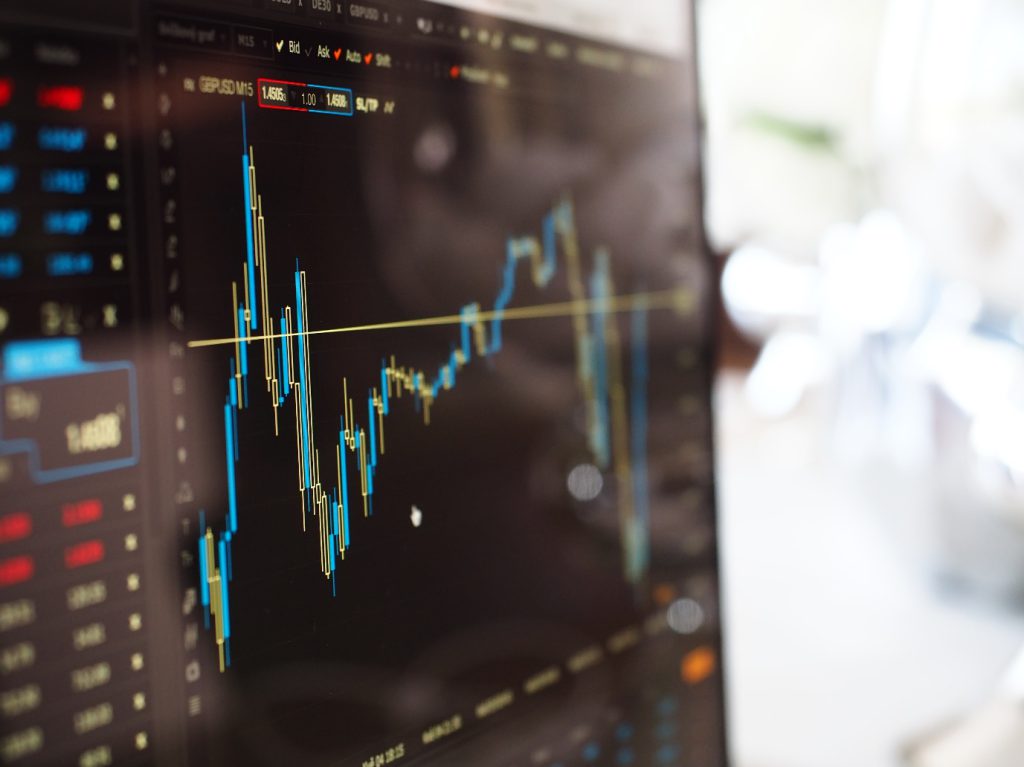Introduction to Forex Trading Psychology
Understanding the psychology behind forex trading is crucial for achieving success in the financial markets. The intersection of emotions, cognitive biases, and decision-making plays a significant role in shaping trading outcomes. In this article, we delve into the intricate world of forex trading psychology, exploring how emotions such as fear, greed, and impulsivity can impact trading decisions. By mastering strategies for emotional control and developing a disciplined trading mindset, traders can enhance their performance and navigate the complexities of the forex market with confidence.
Introduction to Forex Trading Psychology
Forex trading is not just about numbers and charts; it’s also about mastering your own mind. Understanding the psychology behind trading is crucial for success in the financial markets.
The Role of Psychology in Successful Forex Trading
The mindset of a trader can make or break their performance. Emotions, biases, and cognitive errors play a significant role in shaping trading decisions. Learning how to control these psychological factors is essential for achieving consistent profitability.
Understanding Emotional Triggers in Forex Trading
Emotions often run high in the fast-paced world of Forex trading. Recognizing and managing emotional triggers is key to making rational decisions and avoiding costly mistakes.
Common Emotions in Forex Trading
From the thrill of a winning trade to the despair of a losing streak, traders experience a rollercoaster of emotions. Fear, greed, and overconfidence are some common emotional pitfalls that can lead to impulsive actions.
The Impact of Emotions on Trading Decisions
Emotions can cloud judgment and lead to irrational trading choices. Understanding how emotions influence decision-making is crucial for maintaining a clear head and sticking to a well-defined trading plan.
Strategies for Managing Greed and Fear
Greed and fear are two powerful forces that can derail even the most well-thought-out trading strategies. Learning to recognize and control these emotions is essential for long-term success in Forex trading.
Recognizing Greed and Fear in Trading
Greed can lead to overtrading and taking excessive risks, while fear can cause hesitation and missed opportunities. Being able to identify these emotions as they arise is the first step towards managing them effectively.
Techniques to Overcome Greed and Fear
Setting clear risk management rules, practicing patience, and sticking to a structured trading plan are key strategies for combating the influence of greed and fear. Developing a disciplined approach to trading can help override emotional impulses.
Developing a Disciplined Trading Mindset
Discipline is the backbone of successful trading. Cultivating a strong and disciplined mindset is essential for staying focused, consistent, and resilient in the face of market volatility.
The Importance of Discipline in Forex Trading
Discipline helps traders stick to their strategy, manage risk effectively, and avoid emotional decision-making. It is the foundation upon which profitable trading is built.
Practical Tips for Cultivating Discipline
Establishing a routine, setting realistic goals, and maintaining a trading journal are effective ways to foster discipline. By staying organized and accountable, traders can navigate the ups and downs of the Forex market with confidence and composure.### **The Necessity of Knowing Yourself in Forex Trading**
Trading in the forex market is not just about numbers and charts; it’s also about understanding your own psychological makeup. Your trading personality plays a significant role in your success as a forex trader. By being self-aware, you can identify your strengths, weaknesses, and triggers that may influence your trading decisions.
#### **Navigating Your Trading Temperament**
Are you a risk-taker or risk-averse? Understanding your trading personality can help you tailor your strategies to suit your natural tendencies. If you tend to be impulsive, acknowledge it and work on strategies to curb impulsive trading behavior.
#### **Tools to Boost Self-Awareness in Trading**
Tools like trading journals, mindfulness exercises, and seeking feedback from mentors can enhance your self-awareness in trading. By keeping track of your emotions and decisions, you can identify patterns and make informed adjustments to your trading approach.
### **Tactics for Taming Impulsive Trading Habits**
Impulsive trading can lead to costly mistakes and significant losses in the forex market. Recognizing impulsive behavior and learning how to manage it is crucial for maintaining a disciplined trading mindset.
#### **Spotting and Handling Impulsive Trading**
Impulsive trading often stems from emotional reactions to market fluctuations. By practicing mindfulness and taking a moment to pause before making a trade, you can prevent impulsive decisions driven by fear or excitement.
#### **Methods to Deter Impulsive Choices**
Implementing strategies like setting trading rules, using stop-loss orders, and taking breaks during volatile market conditions can help prevent impulsive trading behaviors. Having a structured trading plan in place can also serve as a buffer against impulsive actions.
### **Cultivating Resilience and Mental Strength in Forex Trading**
Resilience and mental toughness are invaluable traits for weathering the ups and downs of forex trading. Developing these qualities can help you bounce back from losses, stay focused during challenging periods, and maintain a positive outlook on your trading journey.
#### **The Significance of Resilience in Trading Triumph**
Resilience enables traders to adapt to changing market conditions and setbacks without losing confidence. It allows you to learn from failures, adjust your strategies, and stay committed to your long-term trading goals.
#### **Exercises for Fortifying Mental Toughness**
Practices like visualization, goal-setting, and maintaining a healthy work-life balance can strengthen your mental resilience in trading. Building a support network of fellow traders or seeking guidance from trading psychologists can also enhance your mental fortitude.
### **Applying Strategies for Emotion Regulation for Sustainable Success**
Emotions play a pivotal role in trading decisions, often influencing outcomes more than technical analysis or market trends. Creating a structured plan to manage your emotions and integrating emotional control into your daily trading routine can lead to sustainable success in the forex market.
#### **Crafting an Emotional Management Blueprint**
Designing an emotional management plan involves identifying your emotional triggers, setting boundaries for trading decisions, and establishing positive coping mechanisms for dealing with stress and anxiety. By acknowledging and addressing your emotions, you can make more rational and controlled trading choices.
#### **Incorporating Emotional Control Into Your Trading Regimen**
Integrating emotional control practices like mindfulness exercises, regular breaks, and self-reflection into your daily trading routine can help you maintain a balanced emotional state. By staying attuned to your feelings and reactions, you can make more informed and level-headed trading decisions for long-term success.
As traders strive to master the art of forex trading, the importance of understanding and managing their psychological state cannot be overstated. By implementing the strategies discussed in this article, traders can cultivate emotional resilience, discipline, and self-awareness, setting the foundation for long-term success in the dynamic world of forex trading. Remember, success in forex trading not only relies on technical analysis and market knowledge but also on the ability to control one’s emotions and make rational decisions amidst the highs and lows of the financial markets.
Frequently Asked Questions
1. Why is psychology important in forex trading?
Psychology plays a crucial role in forex trading as it influences traders’ decision-making processes, risk management strategies, and overall performance. Understanding and managing emotions such as fear, greed, and impulsive behavior are essential for successful trading.
2. How can traders control emotions while trading?
Traders can control their emotions while trading by implementing strategies such as mindfulness, maintaining a trading journal, setting clear trading goals, and practicing risk management techniques. Developing a disciplined mindset and self-awareness can help in managing emotions effectively.
3. What are the common emotional challenges faced by forex traders?
Some common emotional challenges faced by forex traders include fear of missing out (FOMO), revenge trading after losses, overconfidence, and the tendency to hold onto losing positions. Recognizing and addressing these emotional triggers is key to successful trading.
4. How can traders build resilience in forex trading?
Traders can build resilience in forex trading by learning from past mistakes, adapting to market changes, maintaining a positive mindset, and seeking support from mentors or trading communities. Developing mental toughness and a growth-oriented attitude can help traders navigate the ups and downs of the forex market with confidence.

AdHang.com is the No.1 agency for digital marketing in Nigeria and the first Internet public enlightenment agency in Africa. AdHang has everything needed to achieve your digital marketing objectives and goals. From strategic digital marketing, a tactical approach to employing advanced digital marketing tools and technologies, using seasoned marketers with decades of marketing communications experience.









Comments